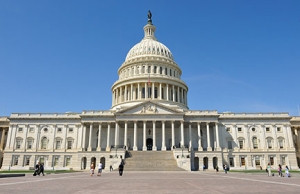ACA
An employer can be fined up to $100 per day for every employee that had a waiting period in excess of 90 calendar days.
The Affordable Care Act (ACA) imposes a new rule that group health plans cannot have a waiting period of more than 90 calendar days.
Ever wonder if the Co-Ops created by the ACA offer QHPs with access to APTCs and an ACO network? Yikes!!!
So many acronyms, what do they all mean? There are a number of different acronyms that are regularly used when we talk about healthcare reform. Here are some of those acronyms along with definitions.
The House of Representatives, controlled by the Republican Party, voted earlier this month to delay the Individual Mandate by one year. It voted 251-174 in favor of delaying the requirement for most individuals to obtain health insurance until January 1, 2015.
This marks the 38th time that the House has tried to repeal or scale back the Affordable Care Act (ACA).
By this time you have probably already heard that the Employer Mandate has been delayed until 2015. In simple terms, no employer will be penalized in 2014 for failing to offer health insurance (or failing to offer affordable health insurance).
Here are 5 key ACA items for employers to know.
The U.S. Department of Treasury announced on Tuesday that the Employer Mandate will be delayed until 2015. This rule is also commonly referred to as the Employer Shared Responsibility requirement or the Pay or Play provision.
The Employer Mandate was set to impose financial penalties starting in 2014 on employers with 50 or more full-time equivalent employees that failed to offer health insurance to employees, as well as those employers that offered health insurance that was considered unaffordable.
Recent guidance helped clarify some of the confusion about Patient-Centered Outcomes Research Institute (PCORI) fees applicable to Health Reimbursement
Arrangements (HRAs) and Flexible Spending Accounts (FSAs). It was originally thought that the fee would be applicable to all covered lives including spouses and dependents. That is no longer the case in some instances.
The U.S. Department of Health and Human Services (HHS) and the Internal Revenue Service (IRS) have jointly issued rules that define affordable coverage. Employers and employees still have several questions about how this affects penalty calculations and subsidy eligibility.
The following offers some insight on these key issues:
The U.S. Department of Health and Human Services (HHS) posted final regulations about the deductible and out-of-pocket limitations to the Federal Registrar on February 25, 2013. Section 1302(c) of the Affordable Care Act (ACA) specifies that the maximum deductible for a qualified insurance plan cannot exceed $2,000 for single coverage and $4,000 for family coverage.








